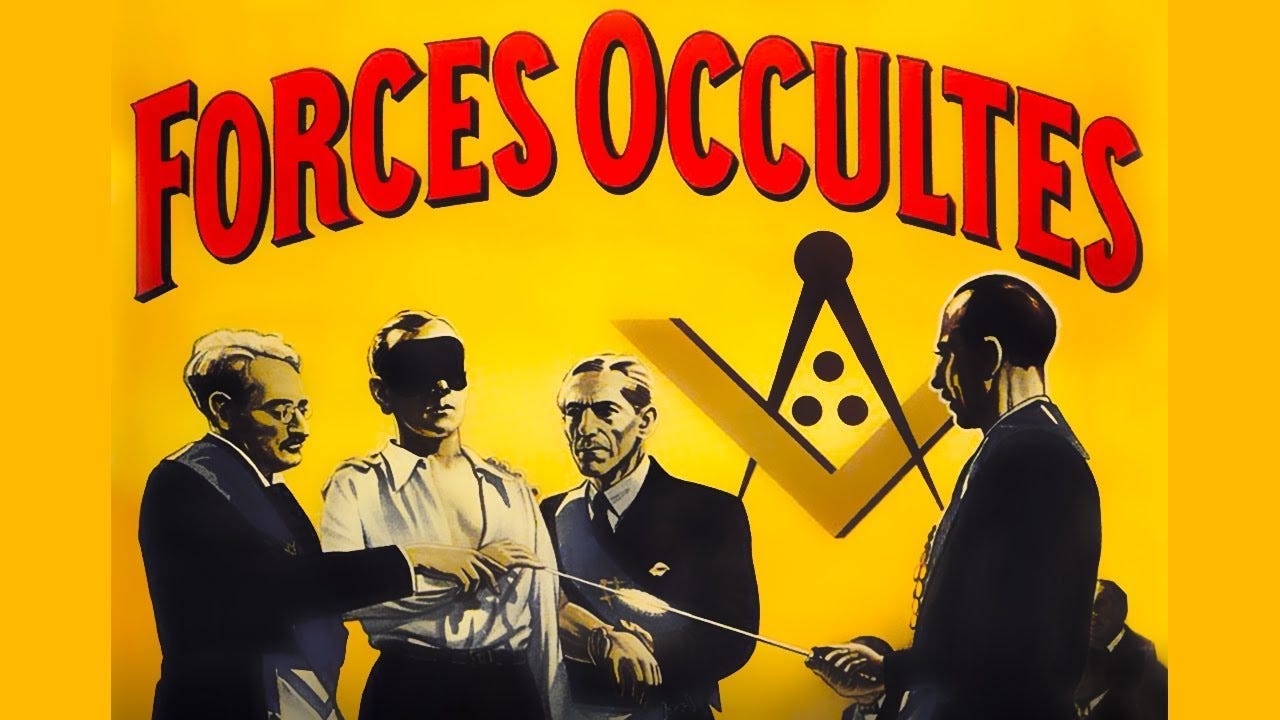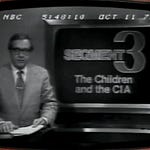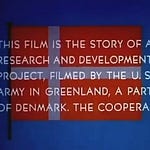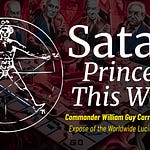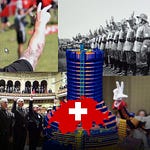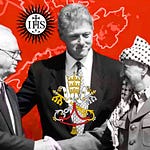The provided text offers excerpts from a YouTube video transcript, "Occult Forces - Mysteries Unveiled - ROBERT SEPEHR," which presents a French film produced in 1943 titled "Occult Forces." This film, made during the German occupation, depicts a young French parliament member's initiation into a Freemason lodge and his subsequent disillusionment with the organization's manipulative practices and push for war. The transcript highlights themes of political corruption, hidden agendas within Freemasonry, and its purported influence on national and international events leading up to World War II. It also touches upon the severe repercussions faced by the film's creators after France's liberation due to its controversial subject matter.
Courtesy to Robert Sepehr for the Translation
Briefing Document: "Occult Forces - Mysteries Unveiled" Analysis
Source: Excerpts from "Occult Forces - Mysteries Unveiled - ROBERT SEPEHR" (Commentary on a 1943 French film).
I. Overview of the Film and its Context:
The film "Occult Forces," produced in 1943 during occupied France, is presented as an exposé of Freemasonry, created with German encouragement. Despite its origins, the commentary states it "reflected broad French sentiment after France's liberation." The film's controversial nature is highlighted by the severe punishment of its creators, particularly the execution of its director, Jean Mamy, a former Freemason, post-liberation. The film aims to "unveil" the "mysteries of freemasonry."
II. Introduction to the Protagonist and his Initial Stance:
The film centers on Avanel, a young member of the French parliament. He is initially portrayed as an honest and principled individual, critical of political corruption. In a parliamentary speech, he states, "This parliament represents only corruption," accusing capitalists of "ceaselessly push[ing] the workforce to misery" and communists of "exploiting the misery." He refuses to vote for a project that "panders to the international capitalist" and "betray[s] the interests of France for the benefit of certain very particular international interests." This idealism makes him an anomaly among his colleagues.
III. Recruitment and Initial Masonic Experience:
Targeting Avanel: Freemasons identify Avanel as an "intelligent young man who needs a method and advice." They see his potential benefit to the order, noting, "masonry would benefit him a great deal and discipline him."
Initial Skepticism vs. Persuasion: Avanel's wife expresses suspicion of Freemasonry, calling it "full of social climbers" and disliking "secret societies." Avanel initially shares this sentiment but is persuaded by the "good ideas" in the text given to him, believing it "seems fair." His wife warns him, "You never see the bad in things... that's why you're always disappointed."
The Initiation Process: The film details Avanel's rigorous initiation.
Interrogation: He undergoes an interrogation about his intentions, beliefs, and political ideas. Despite expressing nationalistic ideas, the Masons note, "it's in our interest to have many parliamentarians in hand." They are advised to avoid shocking him on religious matters, believing he "will have evolved" after working "among us for a while."
Ritualistic Tests and Oaths: Avanel participates in symbolic "voyages" representing human life, passions, and obstacles. He takes an oath of "absolute secrecy," reinforced by a "bitter drink" symbolizing "bitterness and remorse which will remain in your heart [for] perjury."
Warnings and Loyalty: Swords are pointed at him, signifying both aid for loyalty and "vengeance of the brothers spread out across the world" for betrayal. The new brother drinks to "liberty, equality, fraternity."
IV. Corruption and Compromise within Freemasonry:
Everyday Favors and Influence Peddling: Upon joining, Avanel is immediately subjected to requests for favors. He is asked to help a brother obtain a tobacconist's license, secure a Legion of Honor medal, and exert influence for business deals. A brother states, "the grand orient is flooded with business right now with your help things may move a little faster."
Shielding Criminals: The film depicts Masons protecting fellow members from legal repercussions, even when they are "a little guilty." A banker, Levy, is described as a "rogue" who embezzled money, but the Masons decide to keep him because "as long as no one knows we can keep him here amongst us." Another brother admits, "I knew one brother for 20 years who I consider to be a crook but I never said anything because he was an excellent mason."
Erosion of Idealism: Avanel's initial idealism is challenged by the reality of the lodge. He finds it "rotten with social climbers," "beggars for tobacco honest or for honors or rogues who are looking to use me to escape their prison sentences." He describes most Masons as "empty brains but with petty ambitions and flapping tongues," lamenting, "these people govern France."
V. Masonic Control and Political Manipulation:
Deep Political Penetration: A high-ranking Mason reveals the pervasive influence of the order: "50 000 of us in france, 500 000 in england, 3 million in america... We spread everywhere, we have control everywhere." He boasts that "300 parliamentarians are masons in england the king is part of our order in the usa the president is at the 32nd level."
Manipulating Public Opinion and Governance: The Masons are shown orchestrating political events, controlling information, and influencing public sentiment. They manage a scandal involving a brother by ensuring "the right-wing press should stop attacking the left-wing press to achieve a balance to throw them off the scent." They aim to "control the people, the common man, even better the front populaire."
Control of Key Institutions: The Masons discuss control over foreign affairs, the central bank, political parties, and even military production (e.g., "guerlain aviation factories"). A general, a Mason, states, "all of the officers suspected of being against you have been sent out of paris and separated from the others."
"No Enemies on the Left": This phrase implies a strategic alliance or manipulation of left-wing political forces to achieve their objectives.
VI. The Drive Towards War and Avanel's Opposition:
Provoking Conflict: The film explicitly portrays Freemasonry as actively pushing for war, specifically against Germany. A Mason falsely claims, "german aviation doesn't have any hardware," "the siegfried line is barely constructed," and German tanks are "made of cardboard and mounted on bicycle wheels," concluding, "it will be easy for us to fight national socialism."
Avanel's Outcry: Avanel, now disillusioned, vehemently opposes this warmongering, calling the statements "lies and stupid too." He confronts them, saying, "all of you masons are pushing for war so that this country can be governed by your laws by the jews and masonry." He declares, "the french people won't fight to defend such a vapid ideology a vile regime and a rotten republic."
Suppression of Dissent: Avanel is immediately silenced and ordered to "leave the temple." The high-ranking Mason dismisses his opposition, reiterating, "There's only one solution: war."
Violence and Retribution: Avanel's attempt to expose confidential Masonic documents leads to him being found "unconscious in the suburbs." The event is publicly dismissed as a sign of "mental illness."
VII. The "Global Game" and the "Superior Doctrine":
Hidden Rulers/Executors: A high-ranking Mason confesses to Avanel that the true nature of Masonic power is more complex than it appears. He describes himself as an "executor" and a "pawn on a chessboard," receiving and passing on messages. He states, "there are no rulers amongst us there are only executors."
"Ancient Power": The Mason hints at a "superior doctrine, an ancient power in the world which allows us to push people sometimes towards life sometimes towards death as is necessary." This suggests a deeper, perhaps more sinister, philosophical or spiritual agenda beyond mere political influence.
War as a Goal: The ultimate aim of the order is explicitly stated: "universal freemasonry has achieved its goal this war of ours has been declared it will end with the triumph of our order it means that the world will be governed by our methods and our ideas."
VIII. Conclusion of the Film (as described by Sepehr):
The film concludes with the declaration of war, signifying the triumph of Freemasonry's agenda. Avanel, though incapacitated, realizes his inability to prevent it. The Masons celebrate their victory, confirming their belief that "the world will be governed by our methods and our ideas." The final scene shows the lodge closing their "business" at midnight under the "law of silence."
IX. Robert Sepehr's Commentary:
Robert Sepehr, identifying himself as an anthropologist, introduces the film as a significant historical artifact. He encourages viewers to engage with his own published work, particularly "1666 Redemption Through Sin," suggesting a thematic link or further exploration of similar ideas. His concluding remarks imply that the film's "unveiling" of Masonic "mysteries" aligns with his own research and perspectives.



